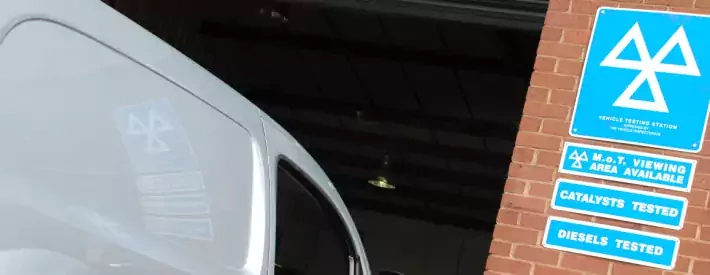Why integrating safety recalls into the MOT could make vehicles safer

With an estimated 2 million plus vehicles having outstanding recalls on them in the UK and the increasing complexity of safety systems on these vehicles it’s incredibly important to make sure customers understand how crucial they are.
Vehicles are intricate machines, and even minor faults can lead to dangerous situations on the road. Recognising the need for a consistent system to address vehicle defects, safety recalls have become an integral part of the automotive world. In the UK, their importance is further underscored by their introduction into the MOT system.
What are safety recalls?
Safety recalls are proactive actions taken by vehicle manufacturers when they discover a defect that could compromise safety. These defects can arise due to design flaws, manufacturing errors, or unforeseen long-term wear and tear. Once a safety issue is identified, manufacturers are responsible for informing vehicle owners and the DVSA of the problem, usually offering a free repair or replacement service to rectify the issue.
While recalls might seem like standard practice today, the system has evolved over decades. The concept of product safety recalls started gaining traction in various industries in the 20th century. The automotive sector, given the potential severity of safety breaches, was one of the first to adopt a structured recall system. Over time, as vehicles became more complex and the potential for defects grew, the recall system became even more essential to ensure road safety. Previously recalls have been communicated to the registered owner of the vehicle which was ok until they moved or sold the car. Owners could also check for recalls on the government web site but not many people have the time to check this on a regular basis.
An integrated approach
By adding recalls to the MOT system it gives owners a yearly check for any recalls and is a start towards tying all the data together to produce a safer solution. Although at present not all manufactures have signed up to the system it’s hoped all will jump on board. This could also be taken up a notch by potentially forcing owners to have the recall work completed before a pass certificate is awarded – a system some other countries have already adopted.
The integration of safety recalls into the MOT system has multiple benefits:
- Increased customer awareness
- Makes a start on bringing all the data for vehicles together
- Makes introducing safety checks on recalls a viable possibility
- Uses live data so is always up-to-date
There’s always a challenge
That said, without all manufacturers signed up, this could cause confusion for the customer, and they may see no recalls on the MOT and presume their vehicle doesn’t have any, but this could be down to that manufacturer not being signed up to the system yet.
It could also potentially have the opposite effect meaning people leave any recall till the MOT, which potentially could mean the vehicle will be on the road for a year with a safety recall on it before it’s noticed by the owner.
The integration of safety recalls into the UK's MOT system represents another step towards enhanced road safety and clear transparency between owner and manufacturer. It reinforces the importance of addressing known defects which will only increase as vehicles become more reliant on safety features. While there are inherent challenges, proactive management and public awareness campaigns could mitigate these.
If you are an MOT tester, don't forget to book your annual training and assessment - don't leave it until the last minute book today.




